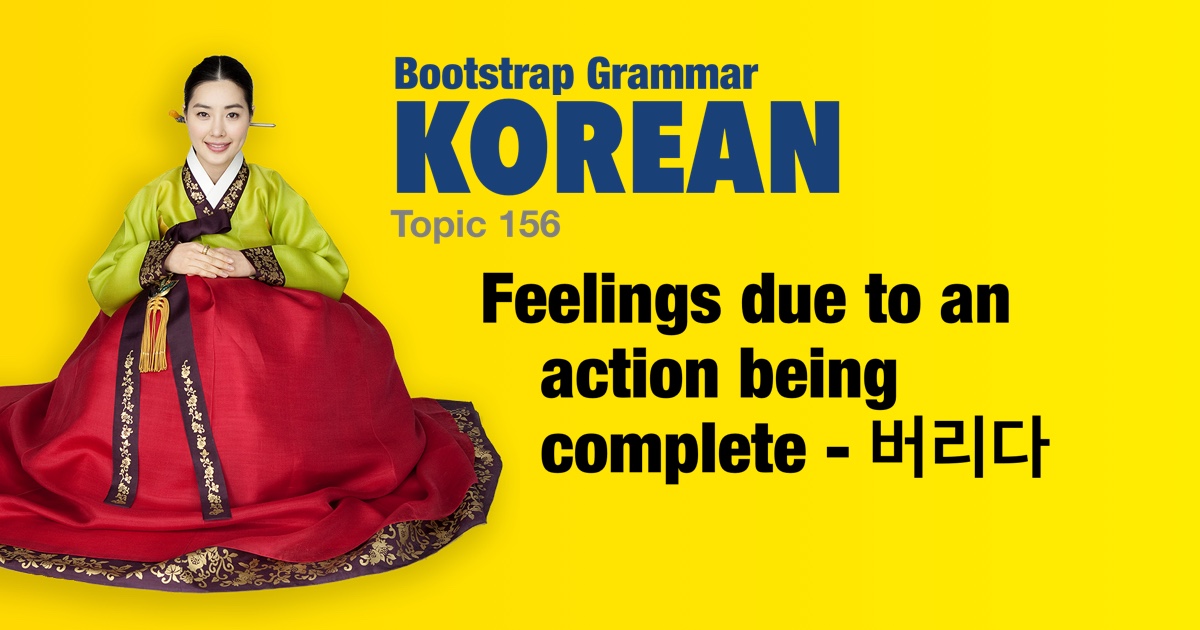Korean grammar - Feelings due to an action being complete - 버리다 |
|||
|
|||
The verb 버리다 means 'to throw away'. But it is also used to express relief or regret that an action is complete. -- Glad to get something out of the way, or regret that that is the end of something. See each phrase's comment for the nuance. |
| Examples: | |
|
오늘 시험을 봐 버렸어요.
(I) took the test.
|
|
|
다 대답해 버렸어요.
(I) answered everything.
|
|
|
돈을 다 써 버렸어요
(I) spent/used all (my) money.
|
|
|
이젠 모든 것이 다 바뀌어 버렸어요.
(Sadly) now everything has changed.
|
|
|
세진이에게 말해버려요.
Just tell Sejin (and unburden yourself).
|
|
|
그녀는 그 말을 듣고 울어버렸어요.
She cried when she heard that.
|
|
|
크게 웃고 잊어버리세요.
Laugh out loud and forget.
|
|
|
그는 비밀을 누설해 버렸어요.
He gave a secret away.
|
|
|
그 사나이는 모두의 기억 속에서 잊혀져 버렸어요.
The man was forgotten in everyone's memory.
|
|
|
그는 받은 용돈을 다 써버렸어요.
He spent all his pocket money.
|
|
|
날씨가 덥고 해서 머리를 짧게 잘라 버렸어요.
It was so hot that I cut my hair short (and it is a relief).
|
|
|
십 분밖에 안 늦었는데 친구는 저를 기다리지 않고 가 버렸어요.
Although I was not more than ten minutes late, (my) friend left without waiting for me.
|
|
|
그 영화가 벌써 끝나 버렸어요.
The movie is already finished.
|
|
|
그 사람이 결국 떠나 버렸어요.
He/she eventually left.
|
|
|
지루한 교수님이 연설을 드디어 끝나 버렸어요.
The professor's boring speech finally ended.
|
|
|
그녀는 남자친구와 헤어져 버린 것 같아요.
It seems that she broke up with (her) boyfriend.
|
|
|
그 일을 다 해 버리서 내 속이 시원해요.
(I) have done all the work, and (I) feel better.
|
|
 |
|


 And is relieved that it is over
And is relieved that it is over
